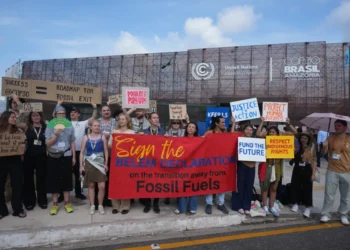Energy is the lifeblood of modern civilization, driving progress, innovation, and economic growth. From powering our homes and industries to fueling transportation and technology, the demand for energy is ever-growing. However, as concerns about climate change and environmental degradation intensify, the need for sustainable energy solutions becomes increasingly urgent. In this article, we explore the importance of energy, the challenges we face, and the path toward a sustainable energy future.
- The Importance of Energy: Energy is essential for virtually every aspect of human life, from heating and cooling our homes to producing food and goods. It powers our cities, drives our vehicles, and enables communication and commerce on a global scale. As the global population grows and economies expand, the demand for energy continues to rise, placing increasing pressure on finite resources and contributing to environmental pollution and greenhouse gas emissions.
- The Challenge of Climate Change: One of the most pressing challenges of our time is climate change, driven primarily by the burning of fossil fuels for energy. The combustion of coal, oil, and natural gas releases carbon dioxide and other greenhouse gases into the atmosphere, trapping heat and causing global temperatures to rise. This leads to more frequent and severe weather events, rising sea levels, and disruptions to ecosystems and food supplies. To mitigate the impacts of climate change, we must transition to cleaner, renewable sources of energy.
- Transitioning to Renewable Energy: Renewable energy sources, such as solar, wind, hydroelectric, and geothermal power, offer a sustainable alternative to fossil fuels. Unlike fossil fuels, renewable energy sources are abundant, widely distributed, and emit little to no greenhouse gases during operation. The rapid advancement of technology has made renewable energy increasingly affordable and accessible, driving growth in renewable energy capacity around the world. Transitioning to renewable energy not only reduces our carbon footprint but also creates jobs, fosters innovation, and enhances energy security.
- Embracing Energy Efficiency: In addition to transitioning to renewable energy, improving energy efficiency is crucial for reducing energy consumption and minimizing waste. Energy-efficient technologies, such as LED lighting, smart thermostats, and energy-efficient appliances, can significantly lower energy use in homes, businesses, and industries. Investing in energy efficiency not only saves money for consumers and businesses but also reduces the need for new energy infrastructure and helps to address energy poverty in underserved communities.
Harnessing the power of energy is essential for meeting the needs of a growing global population while safeguarding the health of our planet for future generations. By transitioning to renewable energy sources, embracing energy efficiency, and adopting sustainable practices, we can build a more resilient and sustainable energy future. Through collective action and innovation, we have the opportunity to create a world powered by clean, renewable energy, where prosperity and environmental stewardship go hand in hand.

 English
English



























































